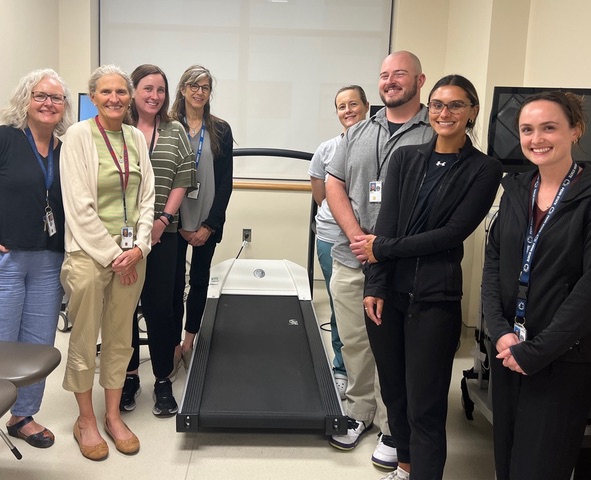Professor Kathleen Griffith, PhD, MPH, FNP-BC, FAAN, GW Nursing Associate Dean for Research, is leading a pioneering study with Alice Ryan, PhD, at the Department of Veterans Affairs (VA) to understand and mitigate the effects of long COVID, or post-COVID conditions (PCCs), in Veterans. Their five-year, $1.9 million research project focuses on the complex relationship between obesity and PCCs, inspired by the notably higher rates of obesity and long COVID among veterans compared to the general population.
The study aims to explore how obesity may contribute to the intensity and duration of long COVID symptoms by examining the problem through both mechanistic and functional lenses. Dr. Griffith's team will investigate the ways obesity might influence inflammation and cellular aging, or senescence, with a focus on how these changes affect physical function and overall quality of life in older veterans. Additionally, the research will assess whether a targeted weight loss intervention can reduce the chronic inflammation and cellular aging linked to long COVID, potentially offering a new approach for managing the condition.
Dr. Griffith and her team recognize that, while veterans do not differ physiologically from the general population, their health profiles are unique. A larger percentage of veterans are affected by obesity and long COVID, which underscores the importance of finding effective interventions for this population. Although data collection has not yet begun, the research team is focused on common PCC symptoms like fatigue, shortness of breath, muscle aches, and pain, which currently are managed only symptomatically. Dr. Griffith hopes that weight loss and physical conditioning for patients could become the standard of care for long Covid.
To ensure a comprehensive approach, the study incorporates veterans' perspectives, examining quality of life metrics at both the baseline and post-intervention phases. This aspect of the research aims to assess not only symptom reduction but also the broader impact on veterans' ability to live fully with PCCs.
Dr. Griffith envisions that this study will provide the foundation for improved long COVID treatments, influencing healthcare practices and policy both within the VA and beyond. By addressing obesity-related inflammation and cellular aging, the research could yield insights into mitigating long COVID’s long-term effects, marking a potential shift in managing PCCs for veterans and the general public alike.


